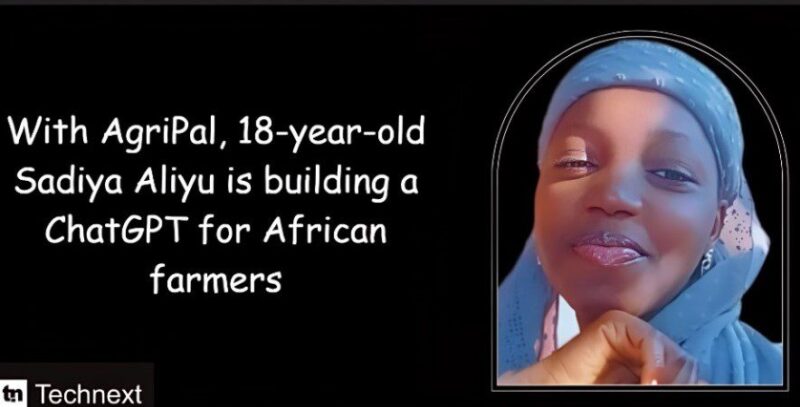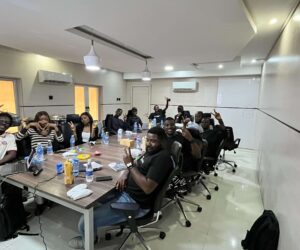Sadiya Aliyu Garba, an 18-year-old native of Niger State, is making waves in the spotlight with AgriPal, a free ChatGPT-like platform where farmers can seek first-hand information about farming practices and improve their annual yield by almost 70%.
In the African agricultural system, farm output gets wasted due to its perishable nature. With trends showing 40% of the food harvested in Africa is wasted before reaching consumers, AgriPal is looking to merge cutting-edge technology with ancient and proven agricultural methods to increase yield.
“AgriPal is bringing in technology to improve farmers’ yield. The chatbot is merged with ancient sources that give farmers new methods of solving everyday issues to ultimately increase their output,” Sadiya said.
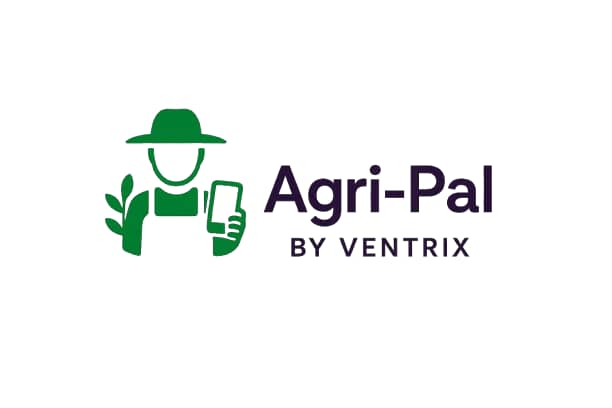
The chatbot is an agent that helps farmers connect to real-time solutions. It provides precise information on “what and how to do” with relatable explanations that correspond with current happenings.
“If a farmer plants maize and there is less rain, the farmer can ask AgriPal what to do to ensure that the maize survives,” she explained.
In a conversation with Technext, Sadiya explained that the solution will help farmers, irrespective of age or gender, not only to discover ample inputs but also to seek better methods through research.
Being a young farmer herself, Sadiya saw the need for a platform like AgriPal. While the chatbot is built in direct connection to farmers, she noted that it appeals to students who can leverage it as a pocket Wikipedia.
According to her, the motivation to build AgriPal stems from her brother’s struggle with getting significant yields on his farm. She considers AgriPal a tool that would solve the struggles of other farmers in her brother’s shoes.
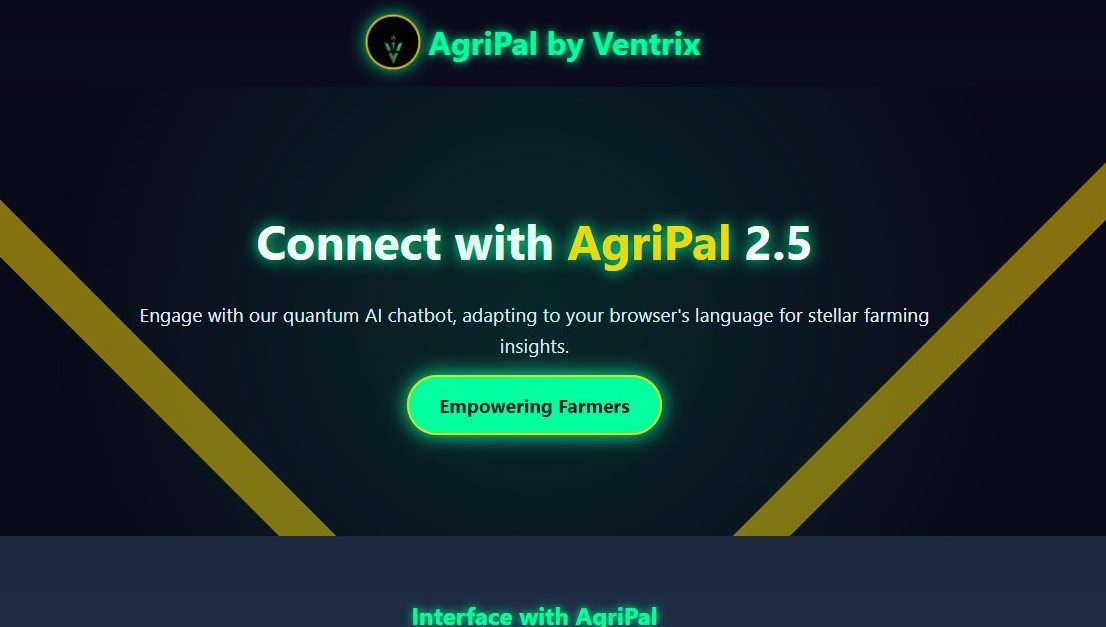

Notably, Sadiya built AgriPal within six months and launched it in May 2025. While she acknowledged that the chatbot is still struggling to gain awareness and adoption, she noted that efforts are in place to create awareness across social media platforms.
“We are organising online programmes for farmers and students through social media. Presently, AgriPal has been widely adopted by some NGOs and students,” she added.
Also Read: Like Google Search, Case Radar is using AI to make law accessible to the common man.
AgriPal is multilingual
While there are numerous platforms intended to blend tech and agriculture for increased productivity, young Sadiya’s alternative is different. Unlike other AI initiatives, the chatbot is designed to understand and reply in many languages.
“You can ask AgriPal to speak any language of your choice, either Hausa, Yoruba, English, Portuguese, French, Chinese, or Arabic.”
Another unique feature is its automatic language adaptation. The chatbot detects the user’s default browser language and can be switched by simple commands, making it accessible to farmers across Nigeria and Africa.
However, the major concern lies in adoption. While Nigeria’s smartphone usage was forecasted to reach 60% by the end of 2025, most farmers are still living without this mobile device, arguably.
Another report revealed that 75% of Nigerian adults are without smartphones.
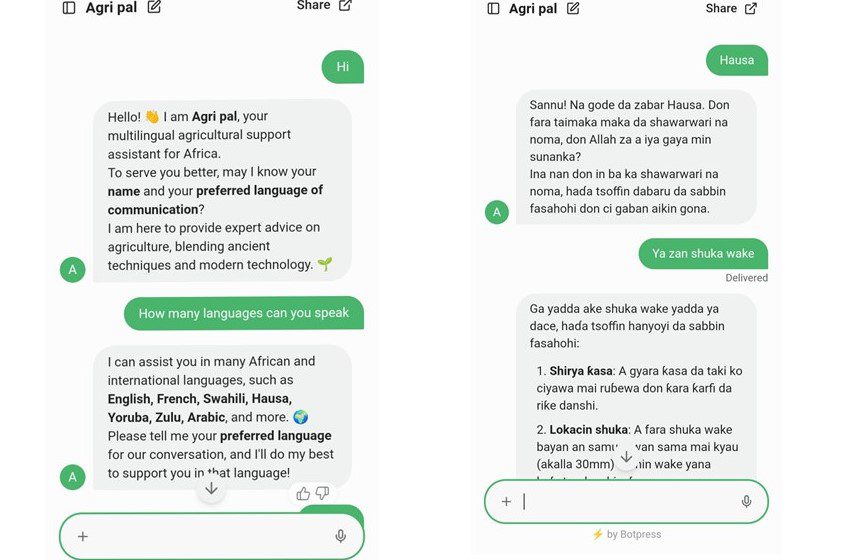

The big question remains: how do people without smartphones access a chatbot?
In response, Sadiya rebutted that the smartphone adoption rate among farmers has increased in recent years. Farmers now need to take records of farm inputs, take pictures, record videos and stay updated with national and global trends.
All these can only be carried out through smartphones, according to the founder. “Farmers of today, the majority of them and their households now own smartphones,” she added.
Though AgriPal is still in its early days, Sadiya is already eyeing new additions. She’s looking to integrate a feature where the chatbot can analyse pictures and videos, and communicate in audio.
“In the coming months, Agripa will be able to analyse videos and photos of farm land. And it will also be able to communicate with farmers, so that the farmer will be able to get a better concept of what is actually happening,” she explained.
Sadiya explained that for all these to come alive, she is looking forward to fundraising, investment from like-minded innovators and partnership.
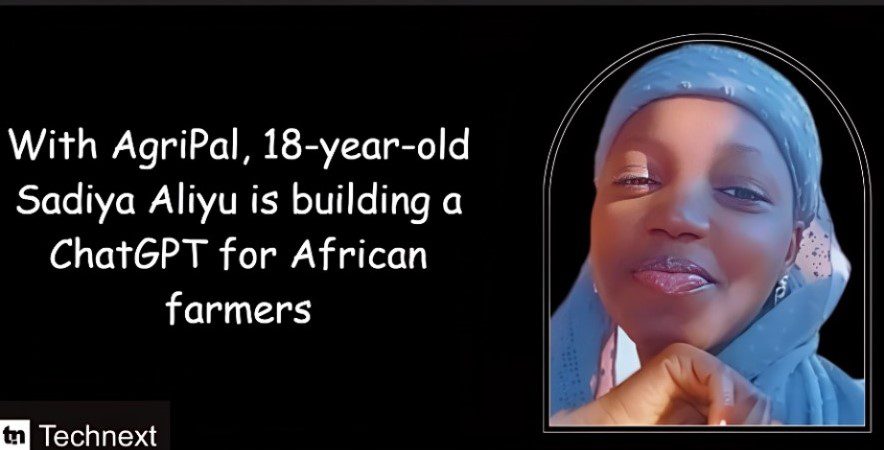

Who is Sadiya Aliyu Garba?
Sadiya Aliyu is currently an 18-year-old young female, a native of Niger State, Nigeria. She just completed SSCE and is still processing her tertiary institution admission.
As the issue of female stereotypes is inevitable, Sadiya is fighting 3 battles: Being young, a female and her location.
Coupled with building AgriPal with no funds and free online tools, she believes innovation isn’t about location, age or race but lies in an individual’s ability. She acknowledged the battle of creating something new as a female, but believes that doesn’t define who you truly are.
“So far, AgriPal has been very useful to most people, especially students. But rural farmers around here are not accepting it, and that's because it was created by an 18-year-old and a female farmer. And that females don't hold a major voice in agriculture,” she said.
During the process of building the platform, the young creator recounted facing challenges that almost made her drop the project. While these pains were inevitable, she realised that deciding to suffer from what people feel is optional.
To Sadiya, focusing on the goal and believing in yourself is the key to success.
“Don’t allow what other people say to weigh you down. Just keep going. Be resourceful, and have faith in yourself. One day, you’re going to make it. Because the race is not about age or gender. It’s actually about what you can give. At first, when you start everything, you’ll be the bad guy. Until that idea becomes great, then everybody will admire you,” Sadiya said.
AgriPal isn’t Sadiya Aliyu’s first tech innovation. She has built “SoilSence,” a low-cost, AI-enabled soil testing and advisory system designed for smallholder farmers.
Another ongoing innovation is “G-Health Nano,” a wearable smart wrist device capable of reading vital signs (heart rate, temperature) and analysing saliva for early detection of multiple diseases.

